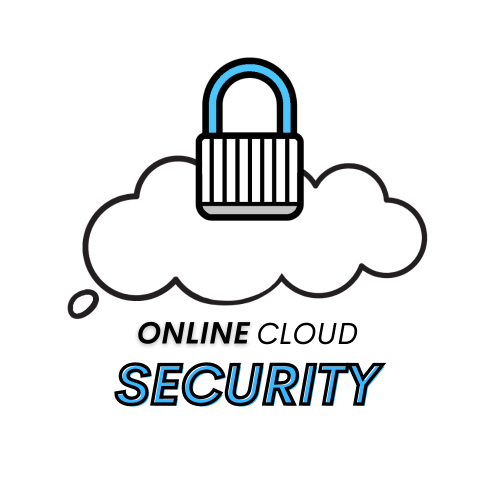
Dave Miller – Tech Enthusiast & Security Expert – September 4th, 2022

In today’s digital age, you have continuously get inundated with the terms cloud security vs cyber security. At first impression, the phrases cybersecurity and cloud security get frequently used synonymously. But did you realize that both have very different meanings and contexts?
In recent years, companies had to adjust immediately to the new working environment, which has created new opportunities for corporate growth. But with this digitization and technology development, cybercrime has skyrocketed.
Moreover, the information security sector is highly alert due to various new and growing cybersecurity threats. Due to this, businesses were more concerned with security and implemented safeguards to protect their data and private information. It is where cyber security and cloud security come into play.
Continue reading the article to learn more about the distinctions between these two general phrases and why it’s essential to understand them.
While the technological world around us is developing at a quicker rate than ever in the 21st century, there are also other challenges that we must contend with. Healthcare, innovation, arts and entertainment, and education are just a few areas that have seen substantial improvements. All of this may get attributed to digital technologies in some capacity, or you can claim that information technology has mainly shaped it. It has given individuals new tools for accessing and exchanging information.
Therefore, creating a protective framework to manage the constantly shifting circumstances in the IT industry is essential. Because the trends in this industry change so frequently, you must stay current. Therefore, one significant warning to bear when gazing into the future is that anything might happen at any time.
Therefore, cloud security vs cyber security will become the critical component of the entire digitization ecosystem anytime you protect your data or information in cyberspace. Making the best choice for yourself or your business may be aided by understanding its fundamental difference.
So, before moving towards a details difference guide for cloud security vs cyber security, let’s quickly know what these terms mean.

The protection of internet-connected devices from cyber threats gets referred to as cybersecurity. People and corporations must have cyber security procedures to prevent unwanted access to data and other computerized networks. Multiple layers of security get dispersed across the systems, platforms, software, or information one wants to keep secure in an effective cybersecurity strategy.
The need to take precautions to stop cybercriminals from gaining access to your data or information is more than ever as we become more and more linked to the devices around us through the internet. There are more than 2,200 cyberattacks every day, according to specific calculations made in research at the University of Maryland. It illustrates how crucial it is to have a cyber practice in place, as one hack occurs approximately every 39 seconds.

The phrase “cloud security,” or “cloud computing security,” refers to a combination of practices and technological solutions that protect cloud computing environments against outside and internal cybersecurity threats. Let’s simplify the situation. The main worry with cloud security is protecting data saved online through cloud computing systems from being stolen, leaked, or deleted. If you take it broadly, it refers to actions performed to safeguard stored data and digital assets.
It would help if you now had a clear idea of cloud security based on the above definition. By 2021, 33% of businesses will have more than 50% of their workloads in the Cloud. Therefore, protection is essential, but it is undeniable that enterprises have struggled to establish suitable cloud security, as shown by the advent of hundreds of data breaches.
Now that you know the definition let’s get straight to discussing where you will be able to differentiate clearly between cloud security and cyber security.
I will go over different parameters that will further highlight the differences between the two entities: Cloud Security vs Cyber Security.
Whenever cyber threats get brought up, it is necessary to protect all IT domains, including cloud security. It is because most cyber attacks are automated and focus on taking advantage of widespread weaknesses rather than targeting particular websites or businesses. In other words, it covers but is not limited to the process of safeguarding your network, devices, and services.
Although one might argue that cybersecurity emphasizes securing the systems that enable data access, storage, transmission, and authentication more than data protection. You may consider cloud security one of the many protective domains under cyber security because it is broad.
Cloud data is encrypted at rest, in transit, or used because cloud security is more focused on confidential computing. It supports consumer privacy, corporate needs, and standards for legal compliance. It gives the capacity to identify security risks and take action before they materialize and gets primarily focused on protecting data, apps, and infrastructure in the Cloud.
We use cloud computing security daily when we utilize cloud storage to store our valuable, enormous amounts of data rather than our devices. Considering the number of cloud storage users, consider that Google Drive crossed a billion users in 2018 and that the Google Workspace cloud will increase to 2 billion users by 2020.
It is one storage service I am talking about. Most of the time, we have accounts on multiple storage sites. According to an outdated statistic, 3.6 billion internet users get expected to utilize cloud computing services in 2018. As a result, anytime you begin using cloud storage, you won’t be concerned about whether or not your data is secure. Cloud security gets offered by the service provider and prevents unauthorized users from accessing data stored there, allowing only authorized users to do so.
It continually filters the traffic attempting to access cloud-based data. Overall, it was built from the bottom up for optimal data security, and your data is encrypted so no one can access it and saved twice so that a copy will survive any disaster. Therefore, the data you hold with cloud service providers may be more secure than the data you have on your computer’s hard disk.
When it comes to cyber security, it is not something that gets always offered by service providers. Any service expects customers to take security measures on their own to safeguard their sensitive data and personal information.
Your personal online hygiene becomes essential in this situation. It would help if you used solid and secure passwords, and there are several choices for two-factor authentication. You will also be careful not to click on or download anything that sounds dubious. In conclusion, you are accountable for cyber security unless you pay someone to handle it.
Artificial intelligence is the ultimate solution for overcoming the issue of how to manage all that data flowing around in the Cloud (AI). It gets typically mentioned when we talk about how you acquire protection in cloud security. AI is required since it aids in automated risk detection and may get used by firms that receive terabytes of incoming data daily.
The use of AI in the Cloud has been a hotly debated subject, and when combined with machine learning, combining two technologies greatly enhances cloud security automation. Today’s businesses can automate a variety of analyses, create quicker and more effective solutions, and identify and neutralize dangers within minutes or hours, which is a record-breaking improvement.
However, AI also contributes to hack prevention by offering robust cyber security. However, the majority of cybersecurity includes the use of antivirus programs to find and eliminate security risks. Different strategies for cybersecurity and cyber defence are available to businesses. Most corporate cybersecurity initiatives focus on detection so that the firm may reduce risk before an intruder can steal critical data.
An organization can avoid possible costs and effects on the organization by preventing an assault in the first place. Several commercial-grade antivirus programs get regularly updated by providers and offer sufficient security for everyone.
Despite its numerous benefits, there are some drawbacks. If you’re thinking about relocating your company to the Cloud, there are multiple things you should be aware of. Security and secrecy are two of cloud computing’s most ambiguous concepts. The biggest drawback of cloud computing security is the enterprise’s diminished ability to improve network security.
Even while partners make extra efforts to secure user data, which might result in higher service costs, this is what you will notice as a weak point in cloud security. According to one statistic, 64 % of IT experts believe the Cloud is safer, but if you dig a little further, just 38 % do.
The user experience is typically the biggest problem with cyber security. Let’s take the example of firewalls, which may be pretty challenging to set up correctly. It may cause some users’ experience to be negatively impacted or slowed down by the system.
Likewise, cybersecurity may be prohibitively expensive for businesses since, even though cyberattacks are unavoidable, it takes more time and effort to maintain adequate protection the more technology you wish to utilize. However, there is no additional alternative to system security, and this expense cannot get decreased anytime soon with rising threats. But remember that investing in cyber protection prevent breaches is intrinsically less financially disruptive than suffering the expense of a loss.
This finishes my comparison of cloud security vs cyber security, and I believe you are now well-informed about both security fields. Typically, people continue to mix up the two, but as I have stated, they are entirely unrelated in their context. In all of this perspective, only one thing is sure: you must have security assurances in place, either for your devices or the Cloud.
The problem of cyber danger is severe and is not going away anytime soon. Therefore, because you have already begun looking up different terms, I would say you are on the right track; you should start brushing up on your online hygiene.
**Onlinecloudsecurity.com is a participant in the Amazon Services LLC Associates Program, an affiliate advertising program designed to provide a way for websites to earn advertising revenues by advertising and linking to Amazon.com and affiliated sites. As an Amazon Associate we earn affiliate commissions from qualifying purchases.**

Dave Miller is an IT Consultant for Online Cloud Security and has over 7 years of experience in the Information Technology space. He also specializes in repairing laptops & computers. In his spare time, he loves to talk about new technologies and hosts monthly IT and Cyber Security meetings in the Houston area.
Click any button down below to share this article on the following channels:

Online Cloud Security is here to recommend you the most secure devices, from laptops to smartphones, we only want to provide you with products that we have tested and used ourselves for online security. Every product that we recommend is heavily inspected and tested for security against hackers, viruses, malware, and any other intruders that may want to steal your information.

Online Cloud Security is here to recommend you the most secure devices, from laptops to smartphones, we only want to provide you with products that we have tested and used ourselves for online security. Every product that we recommend is heavily inspected and tested for security against hackers, viruses, malware, and any other intruders that may want to steal your information.
Your Trusted Source for Online Security